The EV Conversion Industry is Growing Fast
The conversion of the transportation sector to electric is growing fast. As new electric vehicles are produced and put into operation, these vehicles replace older gas-powered internal combustion engine (ICE) vehicles that are scrapped and recycled. However, huge numbers of ICE vehicles currently have many years of useful life left in them. Scrapping these vehicles would not only be environmentally harmful but also not cost-effective. Converting these vehicles to electric is the answer. These are known as EV conversions or electric vehicle retrofits.
Repurposing the existing global fleet of ICE vehicles in this way is an eco-friendly, cost-effective, and efficient use of resources in the spirit of a circular economy, where all resources are re-used to their maximum potential before being recycled. Hot rods, muscle cars, and other highly customized show vehicles have gained the most attention in the EV conversion world. In addition to these showy vehicles are bikes, motorcycles, cars, trucks, and commercial vehicles, which can be converted to electric. A conventional ICE vehicle can be converted to an all-electric vehicle, a plug-in hybrid electric vehicle (PHEV), or a hybrid electric vehicle (HEV).
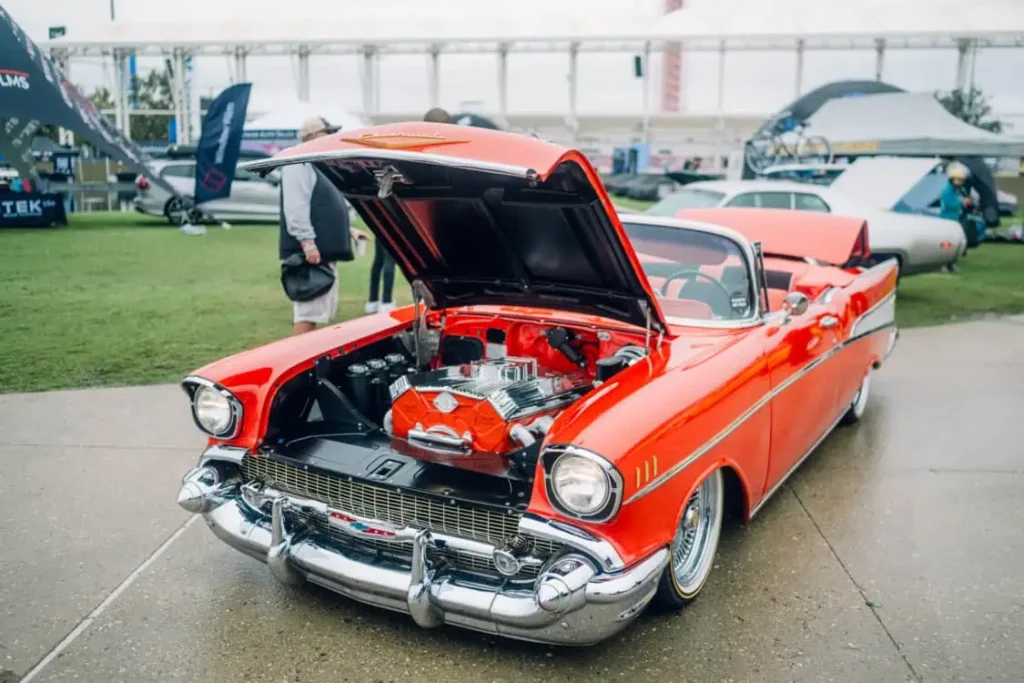
EV Conversion: From Niche Hobby to Booming Industry
Electric car conversion, once a niche interest for hobbyists and enthusiasts, is evolving into a bustling industry. U.S. Electricar, established in the 1970s, was one of the pioneers in this area. They commercialized converting conventional cars into electric ones for the U.S. market, primarily using lead-acid battery storage systems. Around the same time, another company named Solectria emerged on the scene. They rolled out the Force, an electric vehicle equipped with lead-acid batteries. They also offered premium variants with an extended range, powered by nickel metal-hydride batteries. These early strides in the field laid the foundation for today’s burgeoning electric car conversion industry.
EV Conversions on the Rise
Fueled by growing environmental concerns, the demand for electric vehicle (EV) conversions is rising. This trend is a direct response to the limited availability of new EVs and a means to counterbalance their high cost compared to traditional combustion engine vehicles. The affordability aspect of conversions is broadening the industry’s scope beyond the realm of classic and luxury cars. As of 2021, one could convert a gasoline, diesel, or hybrid vehicle into a battery-operated electric car for roughly $8,300, making it a viable option for a broader range of vehicle owners.
Regulation of the Conversion Industry
The EV conversion industry has collaborated extensively with regulators across various nations to establish safety protocols, ensuring that annual vehicle inspection tests on electric conversions are conducted in the same manner as any other electric vehicle.
All vehicle and engine conversions, including but not limited to electric vehicle (EV) conversions, must meet the stringent emissions and safety standards instituted by the U.S. Environmental Protection Agency (EPA), the National Highway Traffic Safety Administration (NHTSA), and state agencies such as the California Air Resources Board (CARB). These regulatory bodies have established comprehensive rules to ensure that converted vehicles uphold environmental and safety considerations. Any non-compliance with these norms can lead to penalties and legal ramifications and compromise the safety of the vehicle’s occupants and others on the road. Adherence to these standards is not just a legal obligation but also an ethical responsibility towards our society and our environment.
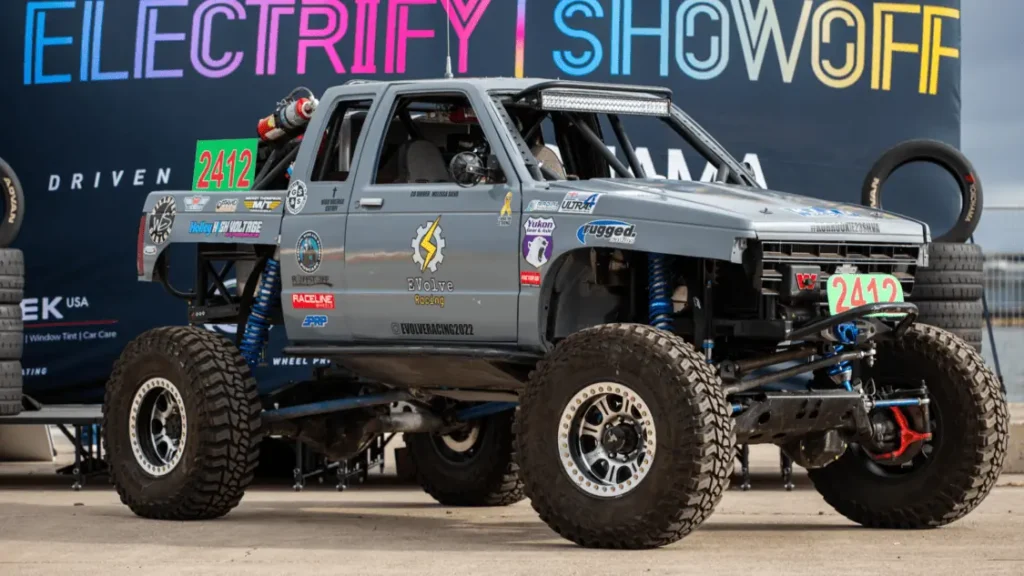
Availability of Parts Can Be a Challenge, But the Aftermarket is Growing
The availability of batteries and electric motors presents the most significant obstacle to the widespread success of the EV conversion industry. Vehicle manufacturers are reluctant to sell their technology for this purpose, limiting the accessibility of essential components. However, an open-source community has emerged alongside the electric vehicle conversion industry to address this challenge. This community fosters the integration of batteries and motors from diverse manufacturers, thus reducing costs and alleviating availability constraints.
Both Ford and General Motors (GM) have joined the ranks of companies offering EV conversion parts. This marks a significant shift in their operational strategies and underlines the growing demand for EV conversion in the automobile sector. In addition to these industry giants, several other companies are entering this rapidly evolving space, further escalating the competition and driving innovation.
The Specialty Equipment Market Association, a prominent trade organization comprising automotive manufacturers and resellers, has noted an exponential growth in the market of EV-focused products. EV conversions and related equipment have grown significantly every year at the SEMA Show, the Specialty Equipment Market Association’s huge annual event in Las Vegas for automotive industry professionals. This trend substantiates the burgeoning interest in EV conversions, demonstrating its potential to reshape the dynamics of the global automotive industry.
Diversification of The EV Conversion Industry
The electric vehicle conversion industry has diversified over time to include specialized conversion car garages, aftermarket kits, and distinct vehicle components. These elements are crucial in streamlining the conversion process and enhancing its accessibility. Some companies have carved out a unique niche by focusing exclusively on certain classic cars. For instance, a vintage VW Beetle, a Rolls-Royce, a Jaguar, or a Citroën H Van may now get a second life as an electric vehicle. This specialization not only caters to classic car enthusiasts but also contributes significantly to the movement against climate change by giving these vintage vehicles a more sustainable future.
Converting Work Vehicles to Electric
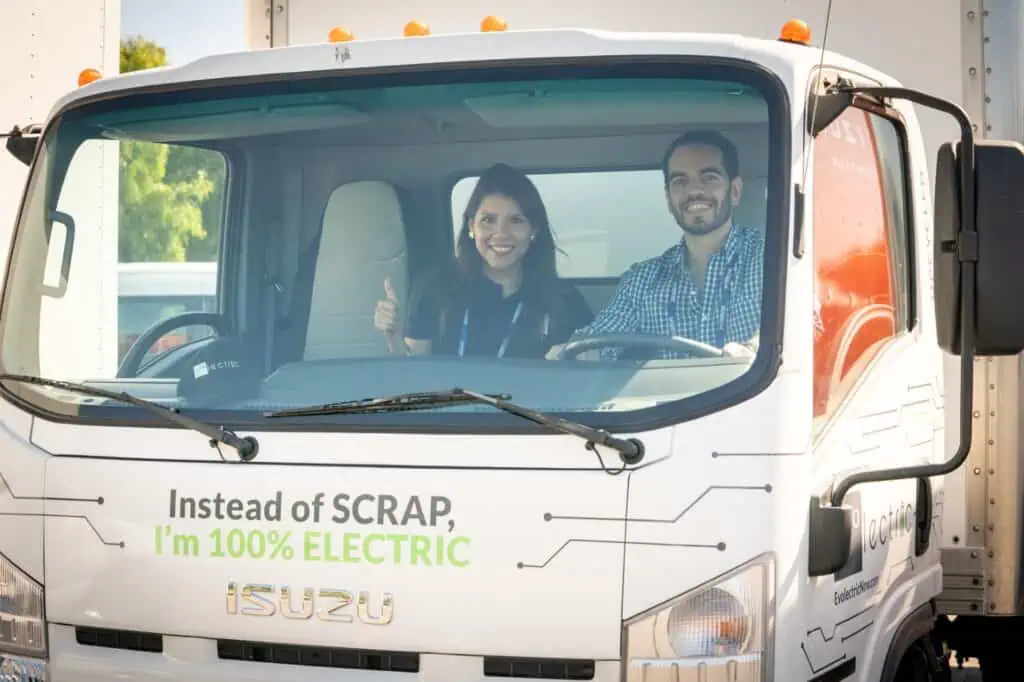
Evolectric, located in California, is an example of a technology company that has carved a niche for itself in converted electric transportation and battery technologies. Their offerings—spanning purpose-built vehicle and battery solutions—are designed to propel global e-mobility forward through the power of rapid prototyping and standardized products. With an unwavering commitment to reducing global carbon emissions and championing the principles of the circular economy, Evolectric is setting new industry standards. Its primary focus is the development and deployment of modular software and hardware that breathes new life into existing ICE commercial vehicles on the road, transforming them into 100% electric vehicles. The Evolectric team shared an impressive recent accomplishment: approval for participation in the Hybrid and Zero-Emission Truck and Bus Voucher Incentive Project (HVIP). This approval paves the way for the market introduction of their electrified conversions for Isuzu’s N-Series trucks.
Evolectric’s CircularEV Solution: Addressing the Challenges of Scalable, Cost-Effective, and Reliable EV Conversions
Jakson Alvarez, Co-Founder/Co-CEO at Evolectric, delivered a crucial message, stating, “Replacing existing gas-powered vehicles with new electric vehicles will not decarbonize transportation fast enough to mitigate climate impact.” Alvarez highlighted the significance of conversions or retrofits as a vital parallel approach to achieve this goal. He pointed out the alarming fact that less than 2% of the more than 340 million commercial vehicles on global roads currently have zero tailpipe emissions.
Moreover, Alvarez expressed concern that accelerating the production of new electric vehicles without addressing existing ones could lead to a surge in waste and emissions from scrapping processes. Recognizing the industry’s challenge of balancing conversions for scalability, cost-effectiveness, and reliability, Evolectric is at the forefront, working to provide a comprehensive solution. Alvarez referred to it as “CircularEV™ solutions,” emphasizing the company’s commitment to collaborating with top component providers, creating a software-defined modular kit, and deploying these innovations through the existing decentralized service center infrastructure. This approach aims to minimize logistics costs and reduce the carbon footprint associated with new vehicle production in expensive centralized plants.
Electrify Expo Celebrates Custom EV Conversions
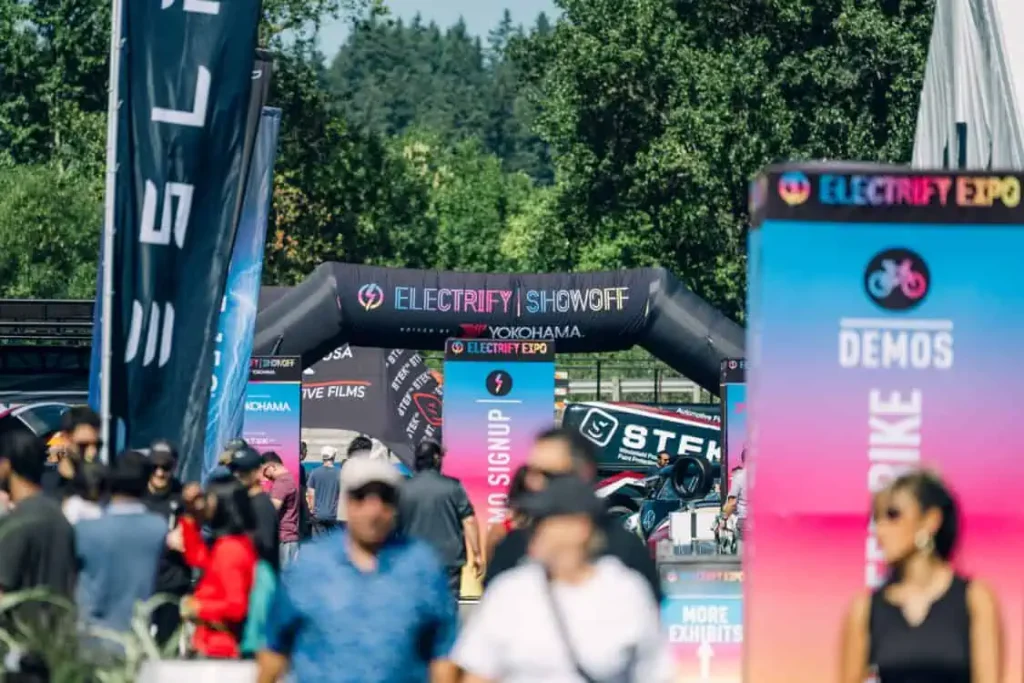
Electrify Expo, celebrated as the largest EV festival in North America, is an exhilarating weekend extravaganza that appeals to all ages. This electrifying event offers attendees the unique opportunity to ride, drive, and demo a vast array of electric vehicles. From the world’s leading electric cars and trucks to e-Motorcycles, e-Bikes, e-Scooters, and e-Skateboards, the festival showcases the pinnacle of electric mobility. Visitors are invited to experience first-hand the thrill of electric driving, gaining insights into the performance, utility, and sustainability of the featured vehicles. With an emphasis on fun and education, Electrify Expo serves as a vibrant platform to stimulate dialogue and foster enthusiasm for the expanding world of electric mobility.
Electrify Showoff Awards Custom EV Conversions
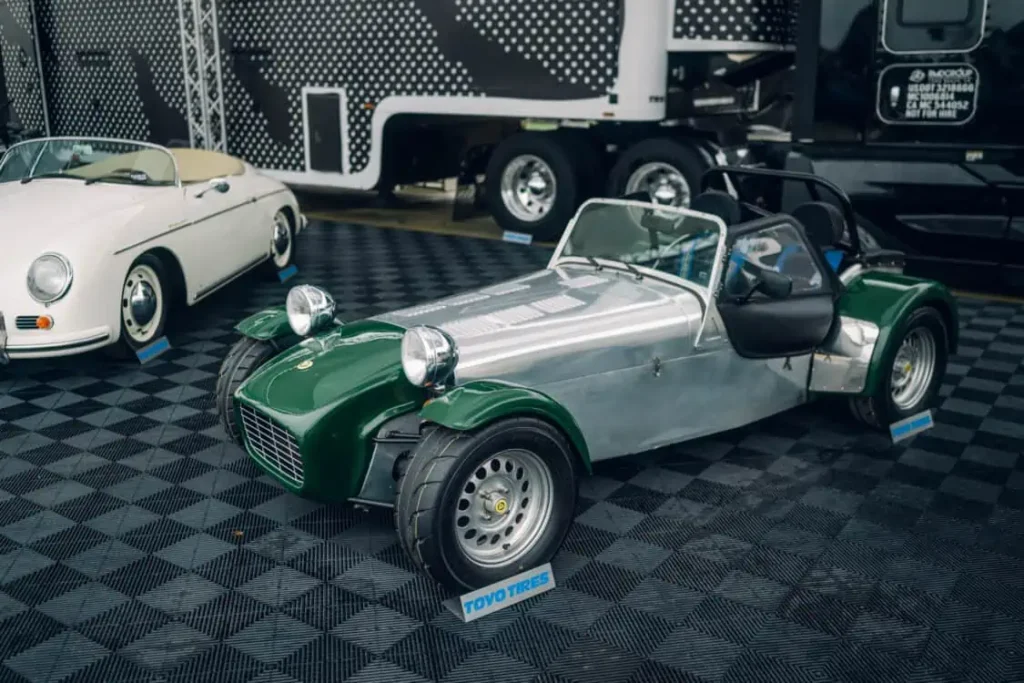
Electrify Showoff is a celebration of customized EVs at Electrify Expo. The event enjoys an impressive standing as North America’s grandest assembly of personalized electric vehicles at the very heart of the EV customization wave. Showcasing a plethora of brands that have innovatively shaped this sector, it serves as the breeding ground for the latest trends in EV modification. The event exhibits the world’s most radical, uniquely embellished EVs, providing a source of inspiration for Electrify Expo attendees looking to add a personal touch to their own electric rides. By intertwining the environment-conscious ethos of electric vehicles with artistic personalization, the Electrify Showoff is truly a testament to the boundless potential of EV customization. Showoff awards winners in 18 categories for each regional event. One of the categories is “Best EV Conversion.”
The “Galax-E” Won Best EV Conversion at the Electrify Showoff in Long Beach, CA, in 2023
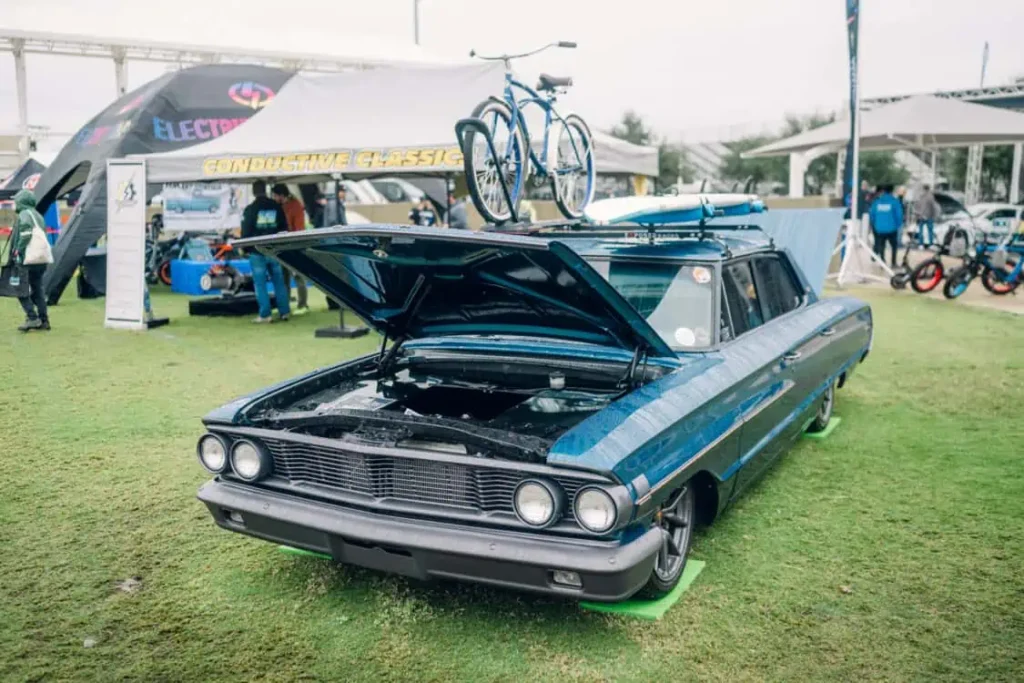
Mike Sallee was the visionary behind the transformation of a vintage 1964 Ford Custom 500 to electric. This classic car was skillfully converted into a cutting-edge electric vehicle by Conductive Classics. With its sleek design that beautifully blends the nostalgia of yesteryear with the promise of tomorrow, the “Galax-E” took the spotlight at the Electrify Showoff in Long Beach, CA, in 2023. There, amidst an array of beautifully customized electric vehicles, it won the prestigious title of “Best EV Conversion.” The award served as a testament to the innovative spirit and unwavering commitment of Conductive Classics in pioneering unique solutions for a more sustainable future.
More Mass Conversion of Vehicles is Needed
While the EV Conversion industry has increased along with the EV revolution, much more growth in the sector is needed. As a nation, individuals and business owners in the United States are still very focused on buying new vehicles rather than repurposing existing ones by converting them to electric. We propose that the government increase funding and incentives for this purpose so that conversions can be completed in large numbers, for example, on an assembly-line process at factories. Conversions have not reached this scale yet, and they should, to make the most impact for the obvious environmental benefits. OEMs would be the best candidates, as they have the most product expertise and production capabilities. However, these retrofits could also be conducted by aftermarket companies.

Electric Vehicle Marketing Consultant, Writer and Editor. Publisher EVinfo.net.
Portfolio: BillPierce.net
